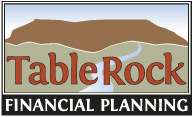Financial Planning Blog
 Managing Your Risks (Part 1)
Managing Your Risks (Part 1)
A recent article by Morningstar director of personal finance, Christine Benz, highlights the importance of managing our financial risks, whether these risks are found in our investment portfolios or in many other areas of our lives. Benz does not claim to be exhaustive in this discussion, but highlights six key areas for consideration. Her article is worth reading, and the first three areas she covers are listed below with additional comments.
Having an adequate emergency fund--Although this is an obvious place to start, it is sadly overlooked by so many individuals and families. In our rush to meet other objectives, generally improving our current lifestyle, but sometimes it is aggressively investing for the future, we fail to assure our basic financial security. Whether the emergency is a job loss, unanticipated medical expenses, or major repairs to your home or car, you should make it a top priority to be prepared. Although the standard advice is something like three to six months living expenses, the right amount is a function of your personal risks and desire for security. This is a worthwhile topic to discuss with your financial planner--especially a fee-only planner who doesn't have a vested interest in allocating your savings into investments that pays the advisor a sales commission. For some useful discussion of the topic check out this Kiplinger's article, or a series of articles at About.com.
Identity theft--This risk has become top-of-mind for many over the last several years, and if you are interested in learning more, including ways to make yourself safer, check out the Federal Trade Commission's Identity Theft site. Benz does not discuss the topic of identity theft insurance, but it is something that Dave Ramsey recommends. Although the specific policy that Dave recommends appears to have features that make it worthy of consideration, many personal finance columnists and consumer advocates do not think these policies are worth the cost--take a look here, here, here, and here.
Having adequate life insurance--This is the first of four insurance policies that Benz discusses. If you have a family depending upon your income (or possibly your services as a homemaker and caregiver) you should almost certainly have adequate life insurance coverage. Benz states, "Life-insurance agents may disagree with me, but term insurance is often the most effective (and certainly the most cost-effective) solution for many individuals." I would state this a bit more strongly: Buy term life, not whole life (or cash value, permanent, universal or whatever it's called) insurance. Again, don't let an insurance agent talk you into a whole life policy without first discussing the issue with a fee-only financial planner who won't be making a sales commission on your purchase. At the same time, have the planner advise you on how much insurance makes sense for you and your family.
Go to Zander Insurance Group for a decent discussion of the term vs whole life issue.
In Part 2, the next three topics mentioned in the Morningstar article (disability income insurance, umbrella liability coverage, and long term care insurance) will be discussed.
Next page: Disclosures



